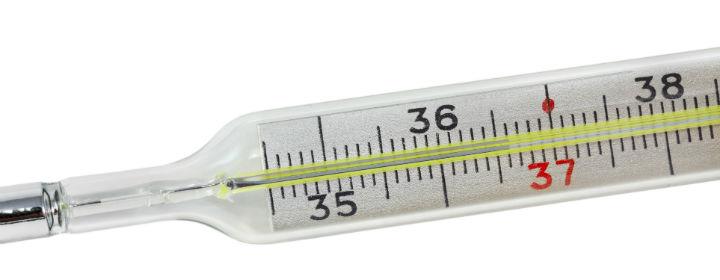Artiklen er på engelsk men let at læse. Har du spørgsmål, er du velkommen til at skrive til info@sund-forskning.dk Denne emailadresse er beskyttet mod programmer som samler emailadresser. Du skal aktivere javascript for at kunne se adressen. Og måske er jeg så heldig, at du har lyst til at oversætte den til glæde for andre læsere?
Salicylates are a family of natural plant chemicals found in fruits, vegetables, nuts, herbs and spices, jams, honey, yeast extracts, tea and coffee, juices, beer and wines. They are also present in flavourings (e.g. peppermint), perfumes, scented toiletries, eucalyptus oils, and some medications (Aspirin is a member of the salicylate family). Salicylates are highest in unripened fruit and decrease as fruit ripens. They are often concentrated just under the skin of fruit and vegetables and in the outer leaves of vegetables. All fruit and vegetables should be ripe and thickly peeled. Do not eat the outer leaves of leafy vegetables. Amines are compounds that are known for their strong, pungent odours. For example, they are found in deli meats such as salami, bacon, ham and frankfurts, tinned fish and meats, tomato paste and pasta sauces. Large amounts are present in cheese, chocolate, wines, beer and yeast extracts. They are also found in some fruits and vegetables, e.g. bananas, avocados, tomatoes and broad beans. MSG (monosodium glutamate) is found naturally in most foods and in its free form, not linked to protein; it enhances the flavour of food. That is why foods rich in natural MSG are used frequently in cooking, for example: tomatoes, strong cheeses (eg. Blue and parmesan), mushrooms, stock cubes, sauces, meat extracts and yeast extracts. Pure MSG is also used as a flavour enhancer in soups, sauces, Asian cooking and snack foods.
| The Salicylate Content of Food |
| * also high in amines + also high in natural MSG |
Frugter
| NEGLIGIBLE | Banana* / Pear (peeled) |
| LOW | Apple-golden delicious / Nashi Pears / Paw paw* |
| MODERATE | Apple-red delicious / Custard apple / Fig * / Lemon* / Loquat / Mango / Tamarillo*/ Pear (with peel) |
| HIGH | Avocado* / Apple-Jonathan / Apple-Granny Smith / Grapefruit /Mandarin*/ Kiwi fruit* / Mulberry / Lychee / Nectarine / Passionfruit* / Peach / Pomegranate/ Sugar Banana* / Watermelon |
| VERY HIGH | Apricot / Berries of all kinds / Blackcurrant / Currant / Date* /Grape* /Guava / Orange / Pineapple / Plum / Prune / Raisin / Redcurrant / Rockmelon / Sultana / Tangelo / Tangerine |
Grøntsager
| NEGLIGIBLE | Bamboo Shoots / Beans-dried / Cabbage / Celery / Lentils-brown / Lentils-red / Lettuce (iceberg) / Peas-dried / Swede / Potato (white peeled) |
| LOW | Bean – green / Brussels sprout / Cabbage-red / Chives / Choko / Leek / Mung bean sprouts / Peas-green* # / Shallots |
| MODERATE | Asparagus / Beetroot / Broccoli* / Carrot / Cauliflower* / Chinese vegetables / Lettuce (other) / Marrow / Mushrooms* # / Onion / Parsnip / Potato # (new and red Pontiac) / Pumpkin / Spinach* / Snow Peas / Snow Pea sprout / Sweet corn# / Sweet Potato / Turnip |
| HIGH | Alfalfa sprouts / Artichoke / Broad bean / Chilli / Cucumber / Eggplant / Radish* / Tomato* # / Waterchestnut / Watercress / Zucchini |
| VERY HIGH | Capsicum / Champignon* / Chicory / Endive / Gherkin / Chilli / Olive* / Radish / Tomato Products*# |
Nødder og snacks
| NEGLIGIBLE | Poppy seed |
| LOW | Cashews / Potato chips – plain / Sesame seeds |
| MODERATE | Brazil nuts* / Coconut* / Corn chips* / Hazel nuts* / Macadamia* / Peanut* / Pecan nuts* / Plain Popcorn / Pine nuts* / Pistachio nuts* / Pumpkin seeds / Sesame seeds* / Sunflower seeds* / Walnuts* # |
| HIGH | – |
| VERY HIGH | Almonds / Muesli bars / Savoury flavoured chips and snacks |
Krydderier
| NEGLIGIBLE | Parsley Salt / Sea salt |
| LOW | Chives / Garlic / Malt Vinegar* / Saffron / Shallots / Soy Sauce* # / Vanilla (pure) |
| MODERATE | – |
| HIGH | All spice / Bay leaf / Caraway / Cardamom / Clove / Coriander / Cumin / Ginger / Mixed herbs / Mustard / Nutmeg / Oregano / Pepper / Rosemary / Tarragon / Turmeric / Vinegars |
| VERY HIGH | Aniseed / Cayenne / Commercial Gravies & Sauces# / Cinnamon / Curry / Dill / Fish sauce / Tomato pastes* # |
Drikkevarer (incl.alkohol)
| NEGLIGIBLE | Decaffeinated coffee & tea / Aktavite / Milo / Ovaltine Carob / Powdered milk (goats, cows) / Soy milk / Pear juice (home-made) / Gin / Whisky / Vodka |
| LOW | – |
| MODERATE | Regular coffee / Herbal tea except Peppermint & Rosehip / Dandelion / Ecco / Bambu / Coke / Beer* / Sherry*/ Brandy* / Cider |
| HIGH | Fruit juice other than pear juice |
| VERY HIGH | All other teas / Peppermint tea / Natures Cuppa / Cordials / Fruit flavoured drinks / Port* / Wine* / Rum / Liqueur |
Fedtstoffer og Olier
| NEGLIGIBLE | Butter / Margarine / Canola Oil / Safflower Oil / Sunflower Oil |
| LOW | Ghee |
| MODERATE | Almond Oil / Corn Oil / Peanut Oil / Sesame Oil / Walnut Oil |
| HIGH | Coconut Oil / Copha / Olive Oil |
| VERY HIGH | – |





